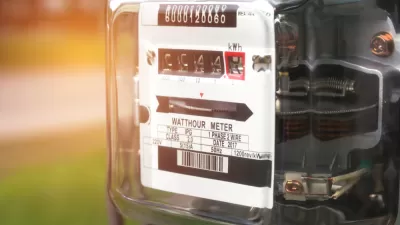It's been exactly a year since the state approved a 3-cent increase in the gas tax with hard fought legislation that ties future increases to inflation. However, the automatic indexing of the gas tax may be undone by voters on November 4.
Many transportation policy experts advise that the federal and state gas taxes continually be adjusted for inflation, and many states, such as Kentucky, do just that. Modest increases can then bypass nasty legislative fights that make raising these taxes extremely difficult. Witness federal fuels taxes, stuck at 1993 levels, that explain why the Highway Trust Fund is projected to become insolvent late next month.
It's been a year since Massachusetts increased its gas tax (on July 30, 2013), the first time in over two decades. "The state's gas tax rose by 3 cents a gallon to 26.5 cents a gallon, including a 2.5 cent a gallon surcharge for cleaning underground storage tanks," wrote Dan Ring of Mass. Live last year.
The modest increase resulted from hard-fought legislation, vetoed by Gov. Deval Patrick for being too modest, but overridden by the legislature. It also tied future gas tax increases to inflation. On November 4, voters will decide whether to repeal those automatic increases set to begin next year as one of four ballot issues that result from citizen initiatives.
"Despite opposition by the group Tank the Gas Tax, which successfully gathered enough signatures to trigger a referendum to repeal the tax increase [sic], the 2013 measure is a sensible solution that stabilizes state gas tax revenues for future years," writes Tax Foundation policy intern Tyler Dennis.
While Question 1 does not repeal the 3.5-cent gas tax increase, it sets the framework for possibly having to wait another two decades for the legislature to increase the gas tax again should the initiative pass.
Even if voters reject Question 1, the citizen initiative illustrates one reason why many critics have called the gas tax unsustainable. Along with increasing fuel efficiency that result in less fuel used per vehicle, new vehicle technology that eliminates traditional taxable fuels, and demographic changes resulting in less driving, the political hurdles in raising the gas tax have many analysts calling for alternative revenue mechanisms such as mileage-based user fees.
For a full chronology of the gas tax repeal initiative, and how it relates to other tax increases repealed by the legislature, see Mass Live's Gas Tax article listing.
FULL STORY: Massachusetts Ballot Referendum Challenges Gas Tax Indexing

Alabama: Trump Terminates Settlements for Black Communities Harmed By Raw Sewage
Trump deemed the landmark civil rights agreement “illegal DEI and environmental justice policy.”

Study: Maui’s Plan to Convert Vacation Rentals to Long-Term Housing Could Cause Nearly $1 Billion Economic Loss
The plan would reduce visitor accommodation by 25% resulting in 1,900 jobs lost.

Planetizen Federal Action Tracker
A weekly monitor of how Trump’s orders and actions are impacting planners and planning in America.

Wind Energy on the Rise Despite Federal Policy Reversal
The Trump administration is revoking federal support for renewable energy, but demand for new projects continues unabated.

Passengers Flock to Caltrain After Electrification
The new electric trains are running faster and more reliably, leading to strong ridership growth on the Bay Area rail system.

Texas Churches Rally Behind ‘Yes in God’s Back Yard’ Legislation
Religious leaders want the state to reduce zoning regulations to streamline leasing church-owned land to housing developers.
Urban Design for Planners 1: Software Tools
This six-course series explores essential urban design concepts using open source software and equips planners with the tools they need to participate fully in the urban design process.
Planning for Universal Design
Learn the tools for implementing Universal Design in planning regulations.
Caltrans
Smith Gee Studio
Institute for Housing and Urban Development Studies (IHS)
City of Grandview
Harvard GSD Executive Education
Toledo-Lucas County Plan Commissions
Salt Lake City
NYU Wagner Graduate School of Public Service




























